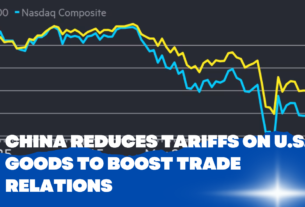A significant dispute has emerged between the UK Government and the Scottish National Party (SNP) concerning a £2.5 million grant intended to support a specialist welding centre in Glasgow, a project integral to Scotland’s defence manufacturing sector.
John Healey, the UK Defence Secretary, has publicly criticised the Scottish Government for its refusal to provide public funding for projects linked to munitions manufacture, describing the SNP’s stance as “student union politics.” Healey has further indicated that the UK Government will intervene if the SNP continues to block the grant, emphasising the importance of safeguarding industrial opportunities and skilled jobs in Scotland.
The Glasgow-based welding centre forms a crucial part of a broader UK initiative, which includes the establishment of at least six new defence factories nationwide and an investment of £1.5 billion aimed at boosting the UK’s industrial capacity. Rolls-Royce, a key partner in the initiative, had committed specialist equipment valued at £11 million to support shipbuilding efforts on the Clyde. However, this significant investment is jeopardised due to the Scottish Government’s policy which prohibits the use of public funds for the manufacture of weapons or munitions, broadly interpreted to include military submarines.
Scottish Government officials maintain their position of not funding projects directly related to arms manufacture, consistent with a longstanding ethical policy. Instead, they support initiatives focused on economic diversification and skills development within the sector. Mairi Gougeon, SNP Rural Affairs Secretary, reiterated this stance on BBC Scotland’s Sunday Show, affirming the government’s commitment to principle despite acknowledging the complex global security environment.
The dispute has elicited criticism from within the SNP as well. Stewart McDonald, a former SNP defence spokesman, publicly called for a reassessment of the party’s policy, citing the evolving geopolitical landscape and the substantial economic contribution of Scotland’s defence sector which employs over 30,000 people and generates approximately £1.5 billion annually. McDonald highlighted inconsistencies in current policy, contrasting the SNP’s refusal to fund local defence manufacturing with its support for UK-wide defence agreements such as recent missile production partnerships involving Northern Ireland.
John Healey underscored the economic and social implications of the funding impasse, describing the welding centre as a “massive industrial opportunity” capable of delivering skilled employment for working-class communities. He criticised the SNP’s position as damaging to Scotland’s future industrial and innovation prospects and pledged that Labour would provide funding if the Scottish Government continued to block the grant.
The controversy raises broader questions about balancing ethical policies with economic imperatives, particularly in sectors closely tied to national security. As the UK prepares to publish its strategic defence review, which will outline significant investment in defence manufacturing, the tension between devolved governance and UK-wide industrial strategy appears set to intensify.




